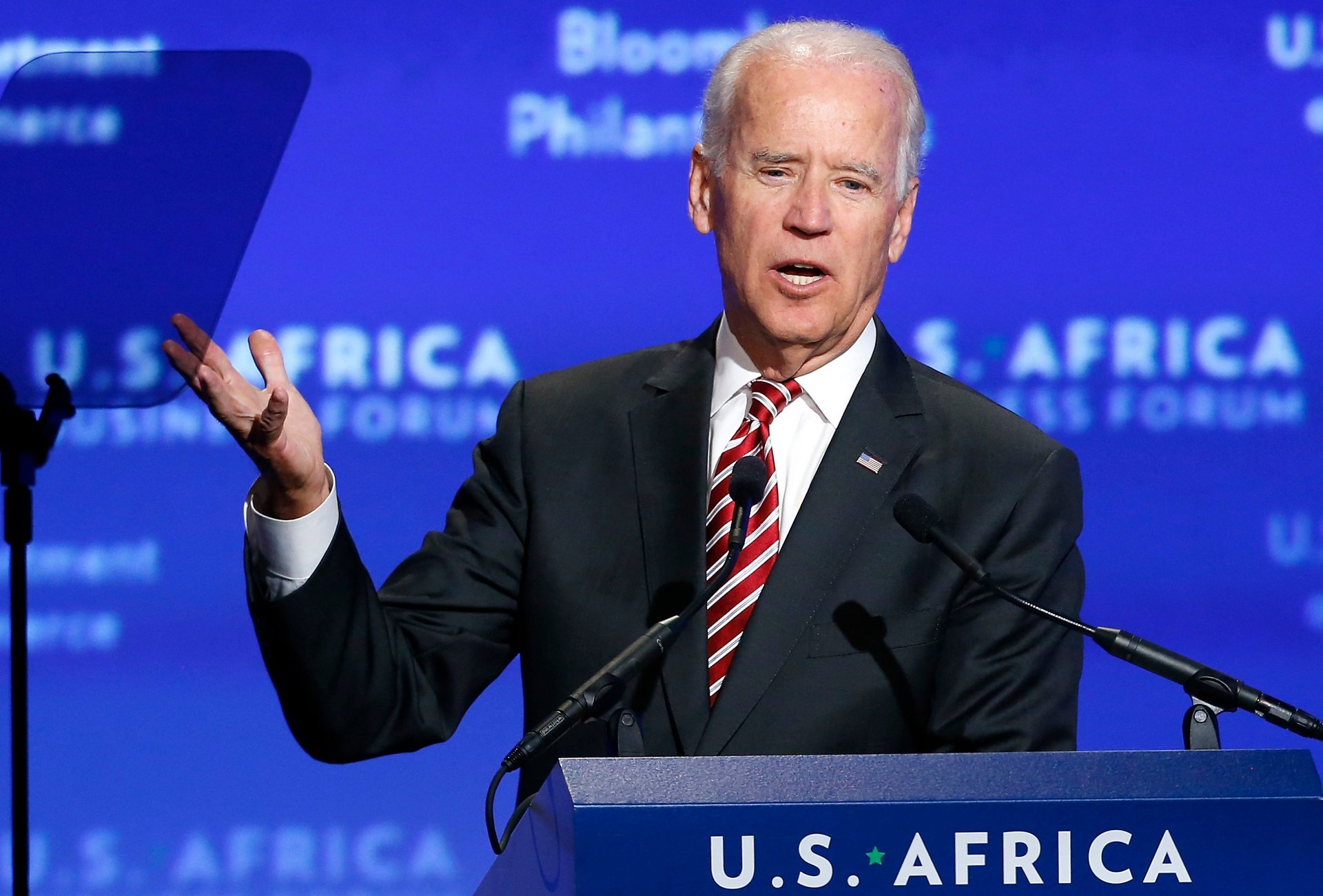The US wants to reset its economic ties with Africa
America has been a longstanding partner to Africa’s nations and its people, leading in aid and development assistance, healthcare, and the fight against transnational terrorism. But Africa is more than conflict and poverty—it represents important opportunities in trade and investment, and many of the world’s major economies recognize this fact.


America has been a longstanding partner to Africa’s nations and its people, leading in aid and development assistance, healthcare, and the fight against transnational terrorism. But Africa is more than conflict and poverty—it represents important opportunities in trade and investment, and many of the world’s major economies recognize this fact.
Many African countries are rapidly enhancing integration into global capital markets and innovating and developing sizable domestic markets. The continent, with a population in excess of 1.3 billion people, a median age under 20 years old, and a landmass large enough to fit Europe, the lower 48 United States, China, and India, includes several of the world’s fastest growing economies.
For these reasons and more, the United States sees strengthening US-Africa economic ties as a priority. America’s capital markets, pension and investment funds, and financial institutions are leaders among their global peers, and are uniquely positioned to play a key role in meeting Africa’s capital needs. Despite this leadership role and America’s close partnership with Africa, too few American companies have developed in-house knowledge of Africa, nor have they established a meaningful presence in Africa.
Whether it is an overestimation of risk or an unfortunate miscalculation of the value of the African market, America trails global partners and competitors in forging investment and commercial ties with Africa. Africa has been starved for capital, yet its continued development requires massive investments in infrastructure, energy, and food production. American assistance must scale programs to better incorporate capital market development, investment fund support, and quality market data. The US government can play a productive role in all the above, chiefly through its capacity to fund robust market analysis, bilateral and regional trade missions, and technical assistance particularly with trade facilitation.
While the United States has a strong track record on technical assistance and capacity building to strengthen governance, transparency, and market frameworks, we must redouble these efforts for stronger impact on improving the trade and investment climate in Africa.
The African Continental Free Trade Area (AfCFTA) provides an important opportunity in this regard, where the development of governance and conflict resolution mechanisms tailored for this framework will be critical for strengthening Africa’s regional economic communities. African nations will also need assistance with restructuring burdensome debt obligations to China that threaten their economic development, national security, and are inconsistent with international norms for sovereign loans.
A large portion of these debt obligations were incurred to finance infrastructure projects, which are pivotal for Africa’s development. A comprehensive strategy to facilitate a fast-growing manufacturing base, ICT hubs, and urbanization will require substantial investment in infrastructure, including energy production and distribution in keeping with attainable low-emission policies.
Climate change is fueling food insecurity, migration, and localized conflict in Africa. The International Energy Agency estimates that by 2040, Africa must triple its annual power generation through gas, wind, and solar energy production to keep Africa’s increased share of global carbon emissions under 1 percentage point over the same period. Bringing a greater share of the African population on-grid will reduce reliance on biofuels that drive deforestation and poor health outcomes and improve prospects for sustainable economic development and poverty reduction.
Through a combination of necessity and timing, Africa has demonstrated its capacity to leapfrog technology to accelerate development and connectivity. Africa’s venture capital and ICT startup ecosystems, including mobile money platforms and other forms of fintech, are developing rapidly and are well established in many cases. The US government should mobilize to support incubators and startups, and foster ties with America’s leading technology companies and venture capital funds seeking new and promising markets in Africa. This approach makes sense for a continent seeing more youth and women enter the workforce, pursue entrepreneurship, and lead major firms. Youth engagement and gender parity are essential for effective human capital development, a key element of UNDP’s partnership with AfCFTA.
For our part, the teams behind these economic initiatives—US government agencies, contractors, and implementing partners—must reflect the diversity of America and the thriving African diaspora therein. To do this effectively and transparently, US government agencies must collect and publish granular, disaggregated data on diversity, equity, and inclusion across their operations, and require all contractors and implementing partners to do the same.
The US Congress will work with the Biden Administration to build on our existing relationships, advance legislation, and set far more ambitious objectives to bolster meaningful economic ties with African nations. A prime example is Prosper Africa, which offers companies and investment funds a focal point for navigating U.S. government programs across its departments and agencies. Congress should authorize and strengthen Prosper Africa, ensure it is made more transparent and accountable, and provide stable funding for viable projects. The Development Finance Corporation and Prosper Africa should also receive the authority and resources required to scale their on-the-ground presence across the continent.
In doing this important work, we cannot lose sight of the importance of ensuring the agency of the African countries and people with which we seek to partner. We must dispel pejorative narratives, eschew sweeping generalizations, and anchor our efforts on facts. In our absence, African nations will continue to seek capital, assistance, and technology from those who do not share our values and priorities for democracy, good governance, human rights, and environmental protection. America has every economic, strategic, and national security reason to prioritize our relationships with Africa.
Sign up to the Quartz Africa Weekly Brief here for news and analysis on African business, tech, and innovation in your inbox.